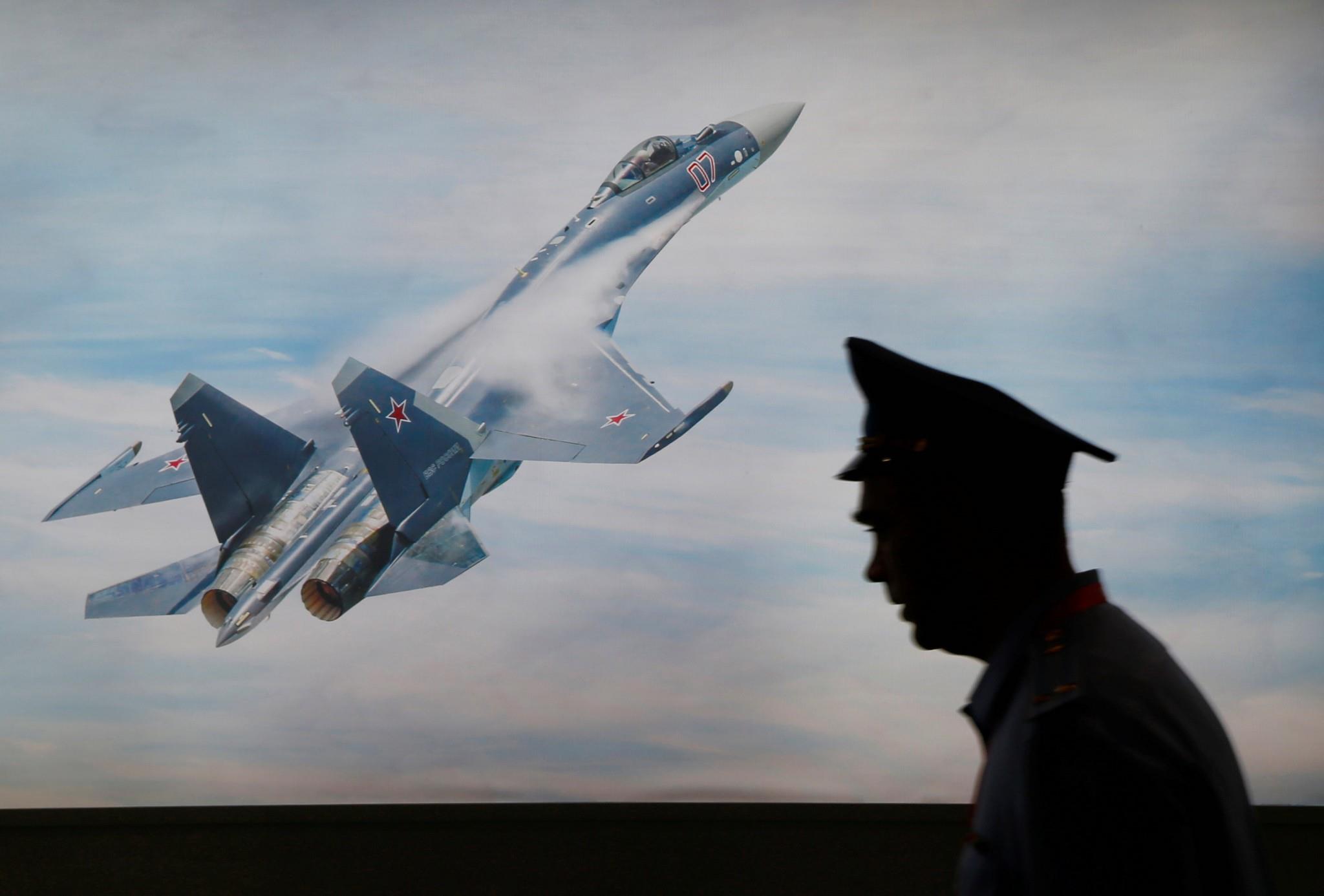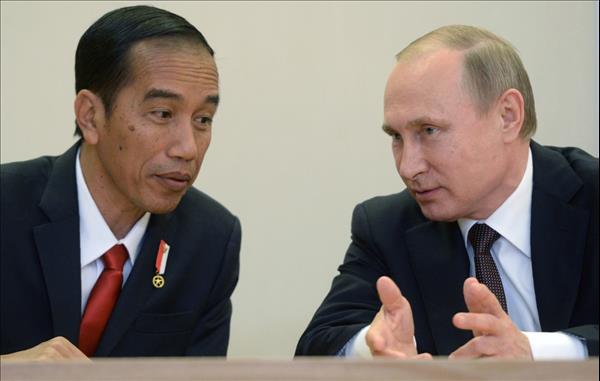
US, Indonesia Agree To Disagree On Ukraine
To many Americans who view Russia's invasion of Ukraine as an unprovoked war that must be opposed, Indonesia's high levels of public support for Russia may be perplexing. But divergent US and Indonesian views should not come as a surprise.
The United States and Indonesia tend to perceive international events — and one another — through distinct ideological and normative frameworks due to their different international positions and historical experiences.
US policymakers typically perceive the United States as a principled, responsible global power dedicated to promoting a liberal, rules-based order. Washington views its international role as a benign provider of leadership and public goods.
As a postcolonial state and a target of subversion in the Cold War, Indonesia views great powers with suspicion. Its foreign policy doctrine calls for Indonesia to promote its interests free from the diktats of great powers.
This is often operationalized as non-alignment, but Indonesia has historically championed the interests of the developing world. Through middle power diplomacy, it emphasizes international law, mediation and support for international organizations.
Indonesia does not view the United States as a benign power. Secessionist rebels supported by the United States in the 1950s threatened Indonesia's territorial integrity. US demands for Indonesia to follow poorly designed International Monetary Fund policies during the Asian financial crisis only deepened the crisis.
After the post-referendum violence in East Timor, the United States imposed a military embargo on Indonesia, criticized its actions through megaphone diplomacy and mobilized international condemnation against Jakarta in the United Nations (UN). This coercive policy contains similar elements to the current Western policy directed toward Russia.
US threats to sanction Indonesia if it purchased Russian military equipment and did not reduce its bilateral deficit reinforced Indonesian perceptions of the United States as a unilateral actor using its power in pursuit of its own national interests.

A military personnel member walks past a picture of a Sukhoi jet fighter during the Indo Defence Expo in Jakarta, Indonesia, on November 2, 2016. Photo: Agencies
The United States views Russia's invasion of Ukraine not only as a violation of sovereignty and international law but also an immoral act. Washington believes the war should be condemned publicly and that Russia must pay the price for its actions.
The United States has sought to mobilize international support to impose costs on and isolate Russia. These include diplomatic votes at the UN, the imposition of sanctions and efforts to remove Russia from international organizations.
Indonesia's foreign policy stance differs. The Foreign Ministry's initial response called the attack on Ukraine“unacceptable” but refused to mention Russia by name. Indonesia later supported the UN resolution condemning the invasion and demanding that Russia withdraw.
But Indonesia emphasized that it was“pushing for resolutions that contain the aspirations of all parties in a balanced manner.”
Indonesia abstained from the vote to expel Russia from the United Nations Human Rights Council. As chair of the G20, it rejected proposals that Russian President Vladimir Putin be disinvited from the November 2022 G20 Summit.
Adherence to international law — particularly the principle of sovereignty — is a core Indonesian interest. Indonesia justified its UN vote against the Russian invasion in these terms.
Many Indonesians reject the moral framing of the US response as hypocritical , asking how Russia's invasion of Ukraine differs from the US war against Iraq. US policy toward the Middle East — particularly its support for Israel despite its refusal to implement a two-state solution to the Palestinian issue — underscores perceptions of the United States as hypocritical.
Public opinion in Indonesia is pro-Russia, with many Indonesians echoing Russian propaganda. Indonesian views of Russia's invasion are shaped by its anti-American sentiment and through social media, where Russian disinformation is rife.
Indonesia has always been a keen proponent of engagement, not isolation, as demonstrated by their refusal to isolate Russia from international institutions. In the case of the G20, Indonesia has a direct interest in making its chairmanship successful.
Indonesia crafted an agenda that reflects the interests of developing countries in global health architecture, digital economy transformation and energy transition. Indonesia does not want to see its agenda hijacked by geopolitics.
Indonesia even invited Ukrainian President Volodymyr Zelensky to the summit in the hopes that Western leaders will rethink their threat to boycott the G20 if President Putin attends.
As chairman of the G20, Indonesian President Joko Widodo, popularly known as Jokowi, traveled to Russia and Ukraine on a peace mission this year. Indonesian Foreign Minister Retno Marsudi evoked core Indonesian policy principles when announcing the trip.
She stated that President Jokowi“chooses to contribute, not remain silent” and would reject“megaphone diplomacy to ensure that the bigger goal of restoring world peace can be achieved.”

Indonesian President Joko Widodo and Ukrainian President Volodymyr Zelensky at a recent official meeting. Image: Handout
Jokowi asked Russia to end its blockade of Ukrainian grain, which has sent prices skyrocketing and exacerbated food insecurity in much of the developing world, including Indonesia .
Distinct foreign policy frameworks help explain the differences in policy toward Russia, but they need not trigger conflict between the United States and Indonesia. Indonesia and the United States both want an end to the war, Ukrainian grain back in global supply chains and progress on the G20 agenda.
The two sides must attempt to find common ground and focus on ways to engage in mutually beneficial collaboration.
Ann Marie Murphy is Professor at the School of Diplomacy and International Relations, Seton Hall University and Adjunct Senior Research Scholar at the Weatherhead East Asian Institute, Columbia University.
This article was first published by East Asia Forum, which is based out of the Crawford School of Public Policy within the College of Asia and the Pacific at the Australian National University . It is republished here under a Creative Commons license.

Legal Disclaimer:
MENAFN provides the
information “as is” without warranty of any kind. We do not accept
any responsibility or liability for the accuracy, content, images,
videos, licenses, completeness, legality, or reliability of the information
contained in this article. If you have any complaints or copyright
issues related to this article, kindly contact the provider above.


















Comments
No comment